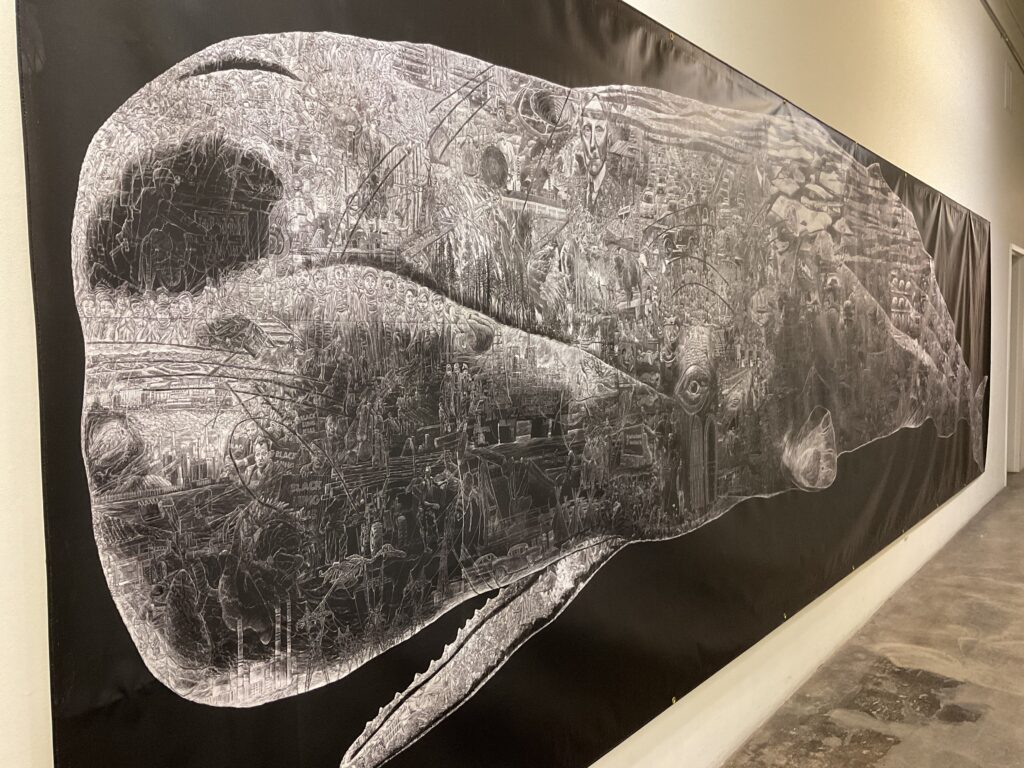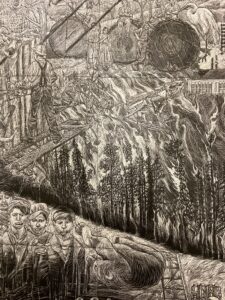…Or, the Whale, by Jos Sances
Kala is excited to present a digital reproduction of “…Or, the Whale” by Jos Sances in Kala’s hallway gallery.
Inspired by Moby Dick and the history of whaling in America, Jos Sances worked on a very large scratchboard drawing for 8 months. The whale’s skin is embedded with a history of capitalism in America, images of human and environmental exploitation and destruction since the 1850s. The whale is a metaphor for survival, immortality, and a reason for optimism.
Image: “…Or, the Whale”, 2019, DIgital print on vinyl, reproduction of the original work ( 51′ x 14′ – 119 of 2’ x 3’ panels)
Artist Statement:
I first felt compelled to create a life-size drawing of a sperm whale while reading Moby-Dick and studying the history of whaling in America, an industry that didn’t end in the United States until the last whaling station closed in Richmond, California in 1971. Inspired by C.L.R. James’s view of Moby-Dick as a metaphor for capitalism, I embedded within the body of the scratchboard whale a history of America from the year of the novel’s publication in the U.S., 1851, to the present. I think of it now as a one-page graphic novel drawn for my grandchildren, an explanation of how we got here.
Or, The Whale celebrates workers—those who carry the human burden of their exploitation and the environment. It suggests the urgency of the current climate crisis and its effect on the health of all of us, but particularly on the most vulnerable—the exploited and abandoned.
Another key inspiration for the work was whales themselves, as I experienced them up close from a small boat in Southern Baja California. Their sheer size and complete freedom transformed my understanding, giving me a glimpse of the natural world in its pure form, without human intervention.
As the planet’s ecosystem changes at an ever-accelerating rate, glaciers melt, rainforests decline, sea levels rise, and the impact of fossil fuel engulfs us all, we ignore the warnings at our peril. But Or The Whale suggests that nature will endure even without us, as it does in Moby-Dick.
I find myself wondering, “Do whales even believe in us?”


